DevOps, a combination of Software Development (Dev) and IT Operations (Ops), is a set of practices aimed at shortening the systems development life cycle while continuously delivering high-quality software. This approach has proven highly effective, with recent studies showing that 99% of organizations implementing DevOps report positive outcomes.
In this article, we'll guide you through the fundamentals of DevOps, exploring its principles, key practices, tools, and career opportunities. Whether you're new to the concept or looking to deepen your understanding, this tutorial will provide you with the essential knowledge needed to grasp the transformative impact of DevOps on modern software development and IT operations.
Key Takeaways
- DevOps combines software development and IT operations to streamline the development lifecycle and ensure continuous software delivery.
- Core principles include collaboration, automation, CI/CD, and Infrastructure as Code (IaC) to enhance efficiency and quality.
- DevOps offers growing career opportunities in roles like DevOps Engineer and Site Reliability Engineer, requiring a mix of technical and soft skills.
Why DevOps Matters
DevOps adoption offers several key benefits crucial in today's fast-paced, technology-driven business environment:
- Faster Time-to-Market: By streamlining processes and encouraging collaboration, DevOps significantly reduces the time from idea conception to product delivery. This agility allows businesses to respond quickly to market demands and stay ahead of competitors.
- Improved Software Quality: Continuous integration and automated testing help catch and address issues early in the development cycle, resulting in more reliable and stable software products.
- Enhanced Collaboration: DevOps breaks down barriers between teams, fostering a culture of shared responsibility and mutual understanding. This improved collaboration leads to better problem-solving and more innovative solutions.
- Increased Operational Efficiency: Automation of repetitive tasks and standardization of processes lead to more efficient resource use, reducing operational costs and minimizing human error.
- Better Alignment with Business Objectives: DevOps practices encourage continuous feedback and rapid iteration, allowing teams to align their efforts more closely with evolving business goals and customer needs.
Understanding DevOps Principles
DevOps is built on a foundation of key principles that guide its implementation and success. Let's explore four core principles:
- Cultural Philosophy: The success of DevOps hinges on fostering a culture of collaboration and communication. This involves breaking down silos, promoting shared responsibility, encouraging continuous learning, and embracing an automation mindset.
- Automation: A cornerstone of DevOps, automation reduces manual errors, increases speed and efficiency, and allows teams to focus on higher-value activities.
- Continuous Integration and Continuous Delivery (CI/CD): CI/CD automates the steps between code commit and deployment. Continuous Integration involves regularly merging code changes and automated testing. Continuous Delivery extends this by automatically deploying changes to staging environments, while Continuous Deployment takes it further by automatically releasing it to production.
- Infrastructure as Code (IaC): IaC manages computing infrastructure using code files, replacing manual configuration. It ensures consistency, enables version control of infrastructure, facilitates automation and documentation, and improves scalability. Popular IaC tools include Terraform, Ansible, and AWS CloudFormation.
Below is a graphical representation of DevOps:
Who Should Learn DevOps?
DevOps principles and practices are relevant to a wide range of IT professionals, including:
- Software Developers: To understand how their code is deployed and operates in production environments.
- System Administrators and Operations Engineers: To learn how to manage infrastructure more efficiently and collaborate better with development teams.
- IT Managers and Team Leaders: To implement DevOps practices and culture within their organizations.
- Quality Assurance Professionals: To integrate testing throughout the development process and ensure software quality.
- Security Specialists: To implement security practices throughout the development lifecycle (DevSecOps).
- Database Administrators: To manage database changes and deployments in a DevOps context.
- Network Engineers: To understand how network infrastructure fits into the DevOps pipeline.
DevOps Tools
DevOps relies on a diverse ecosystem of tools. Each category of tools plays a specific role in streamlining the development, deployment, and maintenance of software. Let's explore these essential DevOps tools and their functions in the software development lifecycle.
Version Control Systems
Version control is fundamental to DevOps practices, providing a foundation for collaboration and code management. Git has become the standard tool for version control in DevOps. It allows teams to monitor changes, handle various versions of code, and work together efficiently. Git’s distributed system supports diverse workflows and facilitates the quick, iterative development that defines DevOps.
Learn more about How Git Works.
For a DevOps practitioner, mastering Git is a must. To get started with Git, consider enrolling in KodeKloud's Git course, which teaches the fundamentals using visualizations and animations.
Continuous Integration Tools
Continuous Integration (CI) tools automate the process of integrating code changes from multiple contributors into a single software project.
Popular CI tools:
- Jenkins: An open-source automation server that supports building, deploying, and automating any project. Consider enrolling in KodeKloud's Jenkins course to build a solid foundation in Jenkins and master its advanced features.
- Travis CI: A hosted CI service that is integrated with GitHub and supports multiple programming languages.
- GitLab CI: A part of the GitLab platform that provides CI/CD capabilities. It provides a flexible and configurable way to define build, test, and deployment workflows, enabling teams to deliver software more efficiently.
Containerization
Containerization has transformed application deployment and management in DevOps. Docker is a platform for developing, shipping, and running applications in containers. Containers package an application with all its dependencies, ensuring consistency across different environments.
Figure: Diagram illustrating how applications are managed using containerization
Benefits of using containers in DevOps:
- Consistency across development, testing, and production environments
- Improved resource utilization compared to traditional virtual machines
- Faster application startup times
- Easier scaling and management of microservices architectures
- Simplified dependency management
If you're looking to get started with Docker or deepen your knowledge, consider enrolling in KodeKloud’s Docker for Absolute Beginners.
Configuration Management
Configuration management tools help maintain consistent system configurations across multiple servers and environments.
Popular tools:
- Ansible: Agentless automation tool that uses YAML for defining configurations
- Progress Chef: Ruby-based tool for writing system configurations as code
- Puppet: Declarative language for describing system configurations
Use cases for configuration management:
- Automating server provisioning and configuration
- Ensuring consistency across development, testing, and production environments
- Managing application dependencies and settings
- Implementing security policies and compliance requirements
Whether you're a beginner or an advanced user, KodeKloud offers comprehensive Ansible courses to help you enhance your skills:
Monitoring and Logging
Effective monitoring and logging are crucial for maintaining the health and performance of DevOps environments.
Popular tools:
- Prometheus: Open-source monitoring and alerting toolkit
- Grafana: Analytics and interactive visualization platform
- ELK stack (Elasticsearch, Logstash, Kibana): Comprehensive logging and analysis solution
Importance of monitoring in DevOps:
- Early detection of issues and anomalies
- Performance optimization
- Capacity planning
- Security and compliance monitoring
Getting a Prometheus Certified Associate (PCA) certification demonstrates your understanding of best practices in monitoring cloud-native applications and infrastructure. Prepare for the PCA exam with KodeKloud's Prometheus Certified Associate course, which offers in-depth lectures and a hands-on lab.
Want to learn more about monitoring, check out this blog: 17 DevOps Monitoring Tools to Learn in 2024.
Orchestration Tools
Orchestration tools manage containerized applications across multiple hosts, enabling scalability and high availability. They are essential for complex applications with multiple interconnected services. Kubernetes is a popular open-source platform for automating the deployment, scaling, and management of containerized applications.
Basic concepts and usage of Kubernetes:
- Pods: Smallest deployable units in Kubernetes
- Services: Abstraction to expose applications running on Pods
- Deployments: Declarative updates for Pods and ReplicaSets
- Namespaces: Virtual clusters for resource isolation
- Kubectl: Command-line tool for interacting with Kubernetes clusters
For more on DevOps tools, you can check this blog: 10 Essential DevOps Tools You Should Learn in 2024.
Setting Up a DevOps Environment
Creating a DevOps environment is a crucial step in putting DevOps principles and tools into practice. In this section, we'll walk through the process of building a DevOps lab and installing essential tools.
Building a DevOps Lab
Setting up a DevOps lab provides a safe space to practice and experiment without affecting production systems. You can choose between a local setup or a cloud-based environment, each with its own advantages.
Setting up a local or cloud-based lab for practice:
- Local Setup:
- Pros: Full control, no ongoing costs, works offline
- Cons: Limited resources, potential compatibility issues
- Tools: VirtualBox, VMware Workstation
- Cloud-based Setup:
- Pros: Scalable, accessible from anywhere, mirrors real-world scenarios
- Cons: Ongoing costs, requires internet connection
- Platforms: AWS, Azure, Google Cloud Platform
Recommended tools and platforms:
- VirtualBox: Free, open-source virtualization software for local setups
- AWS: Offers a free tier with limited resources for 12 months
- Docker Desktop: For running containerized applications locally
- Git: Essential for version control in any DevOps setup
Installing Essential Tools
A typical DevOps environment requires several key tools. Here's a step-by-step guide to installing some of the most common ones:
- Install Git:
- Windows: Download and run the installer from the official website.
- macOS: Install via Homebrew with brew install git
- Linux: Use package manager, e.g., sudo apt-get install git (Ubuntu)
- Install Docker:
- Install Jenkins:
- Ensure Java is installed on your system
- Download the Jenkins WAR file from jenkins.io
- Run Jenkins with java -jar jenkins.war
- Access Jenkins web interface at http://localhost:8080
- Install a code editor (e.g., Visual Studio Code):
- Download and run the VS Code installer.
- Install Ansible (for configuration management):
- Use pip: pip install ansible
Remember to verify each installation by checking the version in the command line, e.g., git --version, docker --version.
DevOps Best Practices
DevOps is not just about tools and processes but fostering a culture of collaboration and continuous improvement. Here are some key best practices that can help organizations successfully implement and maintain a DevOps approach:
- Embrace Automation
Automation is at the heart of DevOps. It's crucial to identify and automate repetitive tasks across the software development lifecycle. This includes:
- Code integration and testing
- Infrastructure provisioning
- Deployment processes
- Monitoring and alerting
2. Collaborate Across Teams
Breaking down silos between development and operations teams is essential for DevOps success. Strategies to improve collaboration include:
- Implementing cross-functional teams
- Encouraging shared responsibilities
- Establishing common goals and metrics
- Fostering a blameless culture that focuses on solutions rather than fault-finding
3. Continuous Improvement
DevOps is an ongoing journey of refinement and optimization. To maintain its effectiveness:
- Encourage a learning culture where team members constantly update their skills
- Stay informed about new tools and methodologies in the DevOps landscape
- Regularly review and optimize your processes
Addressing Common Challenges
While DevOps offers numerous benefits, organizations often face challenges during implementation. Here are three common hurdles and strategies to overcome them:
- Cultural Resistance: DevOps requires a significant shift in mindset and practices. To address this:
- Foster open communication about DevOps benefits
- Provide comprehensive training
- Celebrate early successes
- Ensure leadership actively participates in the cultural shift, demonstrating commitment to the new approach
- Tool Overload: The abundance of DevOps tools can lead to unnecessary complexity. To mitigate this:
- Carefully evaluate tools based on specific organizational needs
- Prioritize integration capabilities
- Regularly consolidate your toolset
- Ensure proper documentation and training for all adopted tools
- Security Concerns: As development and deployment accelerate, security must not be overlooked. To address this:
- Implement a "DevSecOps" approach by integrating security practices throughout the pipeline
- Conduct regular security audits
- Automate security checks and compliance monitoring
- Provide security training to all team members
DevOps Career Paths
The DevOps field is experiencing rapid growth, with the global market projected to reach $25.5 billion by 2028, growing at a CAGR of 19.7%. This rapid expansion is creating a wealth of career opportunities for those ready to embrace its transformative approach to software development and operations.
Key DevOps Roles
Below are some of the popular DevOps roles:
- DevOps Engineer: These professionals bridge the gap between development and operations, automating processes and managing CI/CD pipelines.
- Release Manager: Responsible for coordinating and managing the entire software release process, from planning to deployment.
- Site Reliability Engineer (SRE): Focuses on creating scalable and highly reliable software systems, often working on performance and availability.
- Cloud DevOps Specialist: Specializes in implementing DevOps practices in cloud environments.
- DevSecOps Engineer: Integrates security practices into the DevOps workflow from the start.
Skills and Certifications
Success in DevOps requires a blend of technical proficiency (e.g., scripting, CI/CD tools, containerization) and soft skills (communication, problem-solving). While certifications from cloud providers and software companies can be valuable, practical experience and a commitment to continuous learning are crucial in this rapidly evolving field.
Conclusion
As you've seen throughout this tutorial, DevOps is a comprehensive approach that combines tools, practices, and cultural shifts. Your journey in DevOps doesn't end with setting up a lab environment or learning about best practices—it's an ongoing process of learning, implementation, and refinement.
To help you navigate through the learning process, KodeKloud offers a structured and guided learning path for DevOps. The learning path is designed to keep you focused and on track, ensuring you don't get lost in the sea of ever-expanding DevOps tools. With hands-on labs and in-depth lectures, KodeKloud provides the resources you need to master the essential DevOps tools.



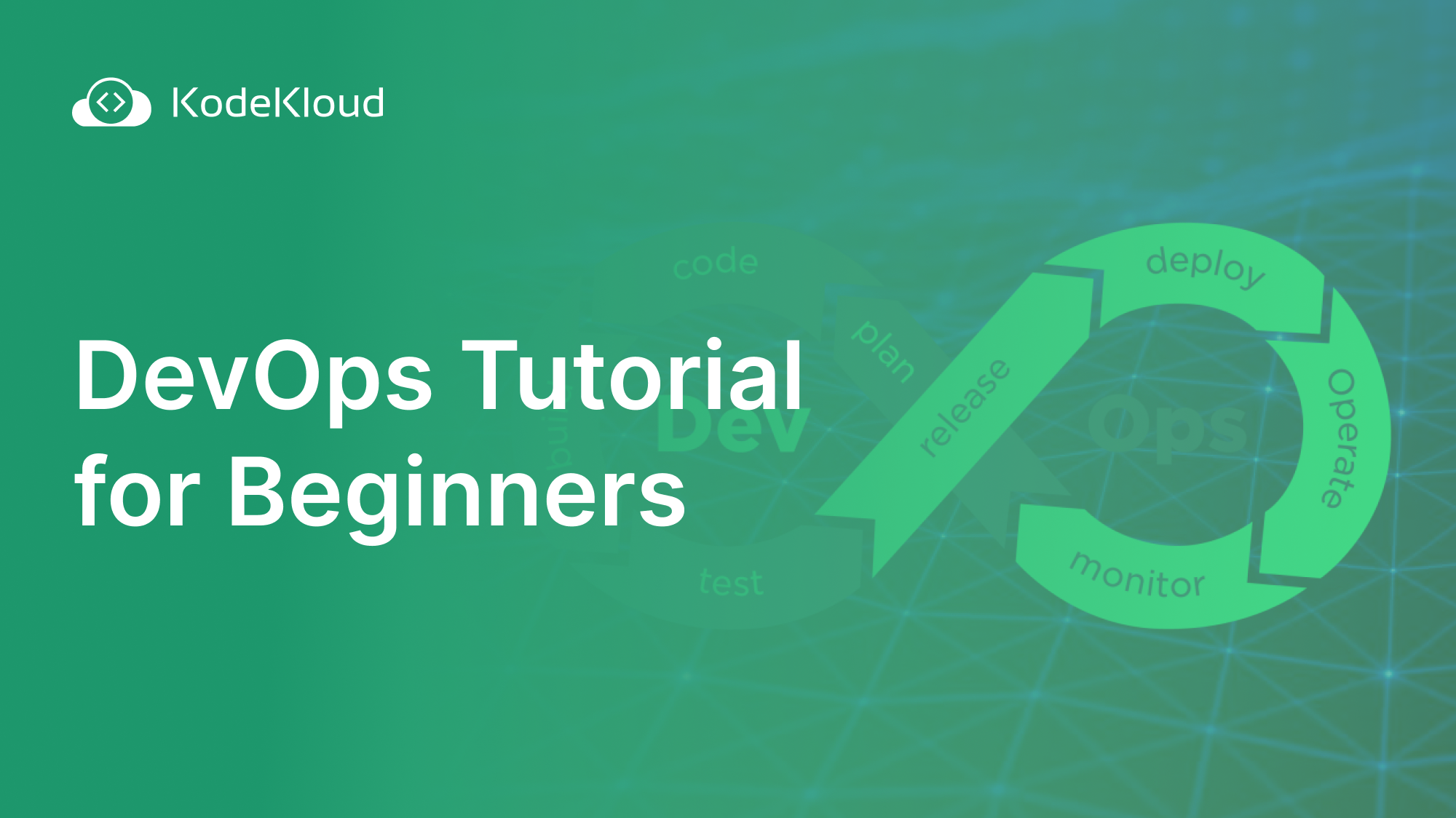
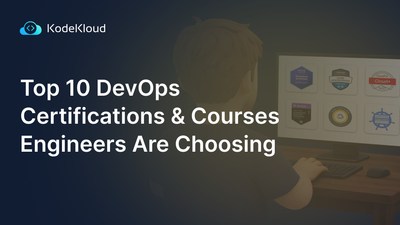



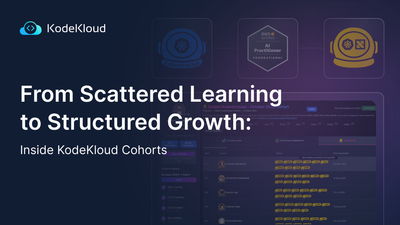
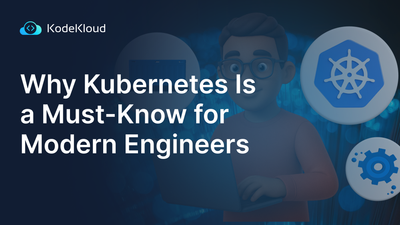

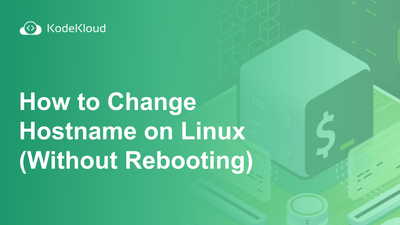


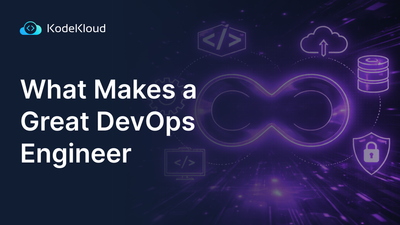

Discussion